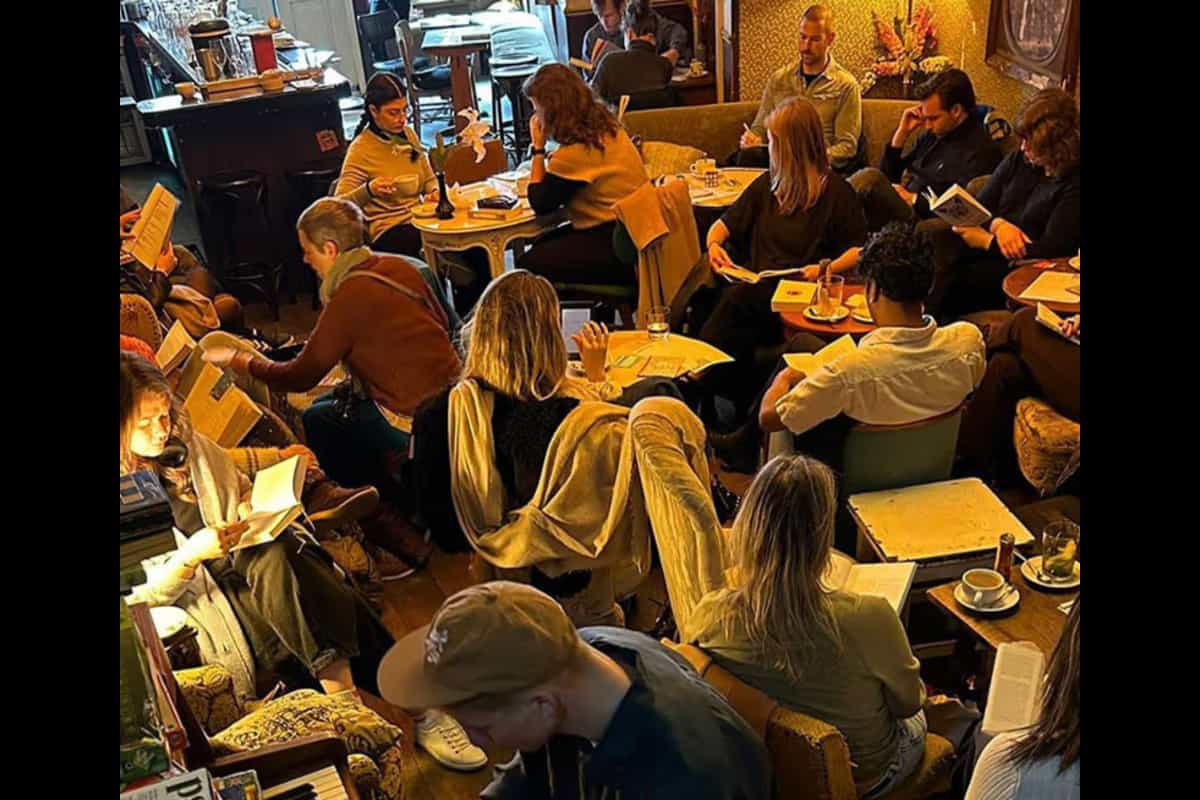European youth abandon social media for "Offline Clubs"—screen-free spaces offering board games and real conversations. The movement spans Amsterdam to Dubai, attracting 530K Instagram followers.

offline club
A growing number of young people are making a countercultural choice: abandoning social networks to reclaim their time and mental wellbeing. This philosophy is driving a rapidly expanding phenomenon across Europe, where genuine “Offline Clubs” are emerging—dedicated spaces for screen-free socializing.
A growing number of young people are making a countercultural choice: abandoning social networks to reclaim their time and mental wellbeing. This philosophy is driving a rapidly expanding phenomenon across Europe, where genuine “Offline Clubs” are emerging—dedicated spaces for screen-free socializing.
The movement originated in the Netherlands but has already conquered major cities including Amsterdam, Berlin, London, Paris, Milan, and Barcelona, even reaching as far as Dubai. These clubs host public events in venues like bars and cafés, where smartphones and internet connections are strictly banned. Instead, they offer activities such as creative workshops, art sessions, readings, along with playing board games and face-to-face conversations, helping people rediscover more authentic social connections.
Driving force behind digital rebellion
This trend reflects a significant cultural shift among younger generations. According to a recent survey by the British Standards Institution, 68% of people aged 16 to 21 feel worse after spending excessive time on social media. Even more striking, 47% declared they would prefer to live in a world without the internet. Some young people are even calling for a minimum age requirement for social media access, similar to Australia’s recent legislation setting the limit at 16 years old.
Educational institutions are also responding: smartphone bans in classrooms are becoming increasingly common, particularly in the United Kingdom. Mental health experts continue to highlight the severe psychological damage linked to technology abuse, especially among teenagers.
How to start your own offline revolution
Within this context, Offline Clubs offer a concrete alternative, including digital detox retreats where participants disconnect not only their phones but also computers, truly living “like before the internet existed.” Despite their anti-digital mission, the clubs strategically use social media to spread their message—the organization’s Instagram account boasts over 530,000 followers.
Anyone can theoretically start their own local club: the requirements include registering a legal business entity and completing official training provided by the movement. The challenge now is transforming this wave of awareness into a lasting movement that helps new generations rediscover the joy of human contact, far from notifications and endless scrolling.
